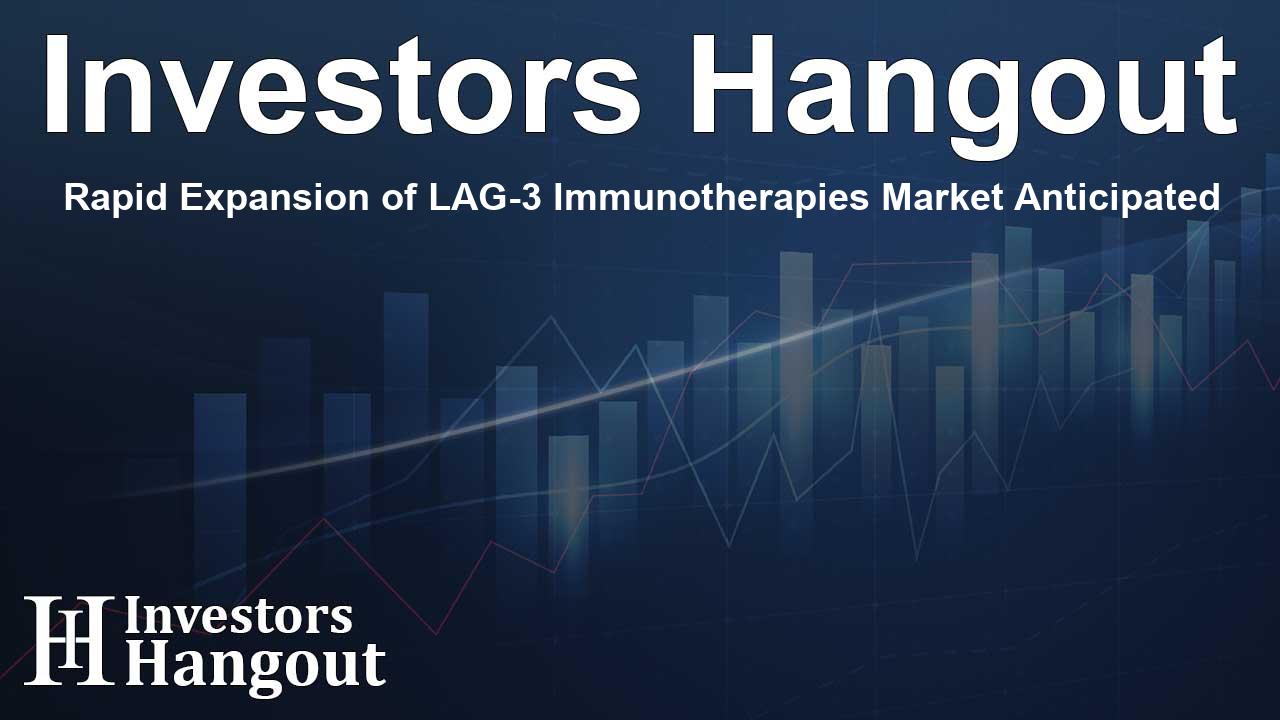Rapid Expansion of LAG-3 Immunotherapies Market Anticipated

Growth Outlook for LAG-3 Immunotherapies Market
The LAG-3 immune checkpoint blockade is poised to experience significant growth in the coming years. This rise is primarily due to the introduction of groundbreaking next-generation therapies designed to enhance treatment outcomes for cancer patients. One of the key factors fueling this expansion is the potential arrival of major LAG-3 candidates, which are expected to gain rapid acceptance in clinical settings. With the increase in reported cases of solid tumors and patients experiencing relapsed or refractory cancer, healthcare professionals are increasingly looking toward innovative solutions to improve patient care.
Understanding the Role of LAG-3 in Cancer Immunotherapy
LAG-3 (CD223) is an important immune checkpoint receptor that is integral to regulating T-cell activity and immune responses. By inhibiting excessive activation of T-cells, LAG-3 helps maintain immune balance but also facilitates tumor evasion. This dual role emphasizes its potential as a therapeutic target in oncology. The continuing need for effective treatment options is highlighted by the ongoing emergence of LAG-3 therapies that show promise in revitalizing immune responses against various cancers, especially in combination with PD-1/PD-L1 inhibitors.
Current Landscape of LAG-3 Immunotherapies
Several pharmaceuticals are actively investing in the development of LAG-3 immunotherapy technologies. Notable players include Merck, Adaptimmune, Regeneron Pharmaceuticals, Immutep, and F-star Therapeutics, which are at the forefront of this innovative approach. Their efforts focus on creating monoclonal antibodies and bispecific therapies targeting LAG-3, alongside candidates like Favezelimab and ADP-A2M4CD8 that exhibit potency in clinical trials.
Market Drivers Contributing to Growth
The driving forces behind the increasing interest in LAG-3 therapies include the rising rates of cancers characterized by immune resistance mechanisms, particularly among solid tumors like melanoma and lung cancer. These factors contribute to a healthcare landscape hungry for therapeutic innovations that can provide improved efficacy over traditional treatment methods. Moreover, the FDA's recent approvals of various LAG-3 inhibitors have validated ongoing research and development, encouraging investment into this market.
Strategic Partnerships and Market Adaptations
The LAG-3 immunotherapy market's evolution is not just limited to emerging drugs; strategic partnerships among major pharmaceutical entities and biotech firms are shaping its trajectory. These collaborations aim to hasten clinical development phases and streamline the adoption of novel therapies. Additionally, advancements in genomics and artificial intelligence are contributing to the identification of optimal patient populations, enabling medical professionals to customize treatments more effectively.
Challenges Facing the LAG-3 Immunotherapy Sector
Despite considerable advancements, challenges remain within the LAG-3 market. The intensifying competitive landscape complicates the pathway to market entry for both established and emerging companies. Moreover, the complexities associated with combination therapies, such as assessing cost-effectiveness and regulatory compliance, require careful navigation to ensure broad accessibility for patients.
Future Perspectives and Expectations
Looking into the future, LAG-3 immunotherapies are anticipated to significantly transform the treatment landscape for patients battling various cancers. As more therapies gain regulatory approvals, healthcare providers will have the tools necessary to enhance immune responses effectively. Successful implementation of these therapies holds the potential to not only improve survival rates but also broaden treatment applications to include autoimmune diseases as more is learned about LAG-3's regulatory functions.
Frequently Asked Questions
What is LAG-3 and why is it important?
LAG-3 is an immune checkpoint receptor that plays a significant role in regulating T-cell activity. Its ability to inhibit T-cell activation helps maintain immune balance, making it a promising target for cancer immunotherapy.
How is the LAG-3 immunotherapy market expected to grow?
The market is projected to expand significantly due to new therapy approvals, increasing cancer cases, and advances in understanding immune resistance mechanisms.
What companies are leading the development of LAG-3 therapies?
Leading companies include Merck, Adaptimmune, Regeneron Pharmaceuticals, and Immutep, all of which are advancing the development of innovative LAG-3 treatments.
What challenges does the LAG-3 market face?
Challenges include a competitive market landscape, regulatory hurdles, and complex pricing strategies for combination therapies.
What unique developments can we expect for LAG-3 immunotherapies in the future?
Future developments include potential approvals for numerous next-generation therapies, advancing clinical research, and strategies to integrate LAG-3 treatments into broader cancer care protocols.
About The Author
Contact Riley Hayes privately here. Or send an email with ATTN: Riley Hayes as the subject to contact@investorshangout.com.
About Investors Hangout
Investors Hangout is a leading online stock forum for financial discussion and learning, offering a wide range of free tools and resources. It draws in traders of all levels, who exchange market knowledge, investigate trading tactics, and keep an eye on industry developments in real time. Featuring financial articles, stock message boards, quotes, charts, company profiles, and live news updates. Through cooperative learning and a wealth of informational resources, it helps users from novices creating their first portfolios to experts honing their techniques. Join Investors Hangout today: https://investorshangout.com/
The content of this article is based on factual, publicly available information and does not represent legal, financial, or investment advice. Investors Hangout does not offer financial advice, and the author is not a licensed financial advisor. Consult a qualified advisor before making any financial or investment decisions based on this article. This article should not be considered advice to purchase, sell, or hold any securities or other investments. If any of the material provided here is inaccurate, please contact us for corrections.
